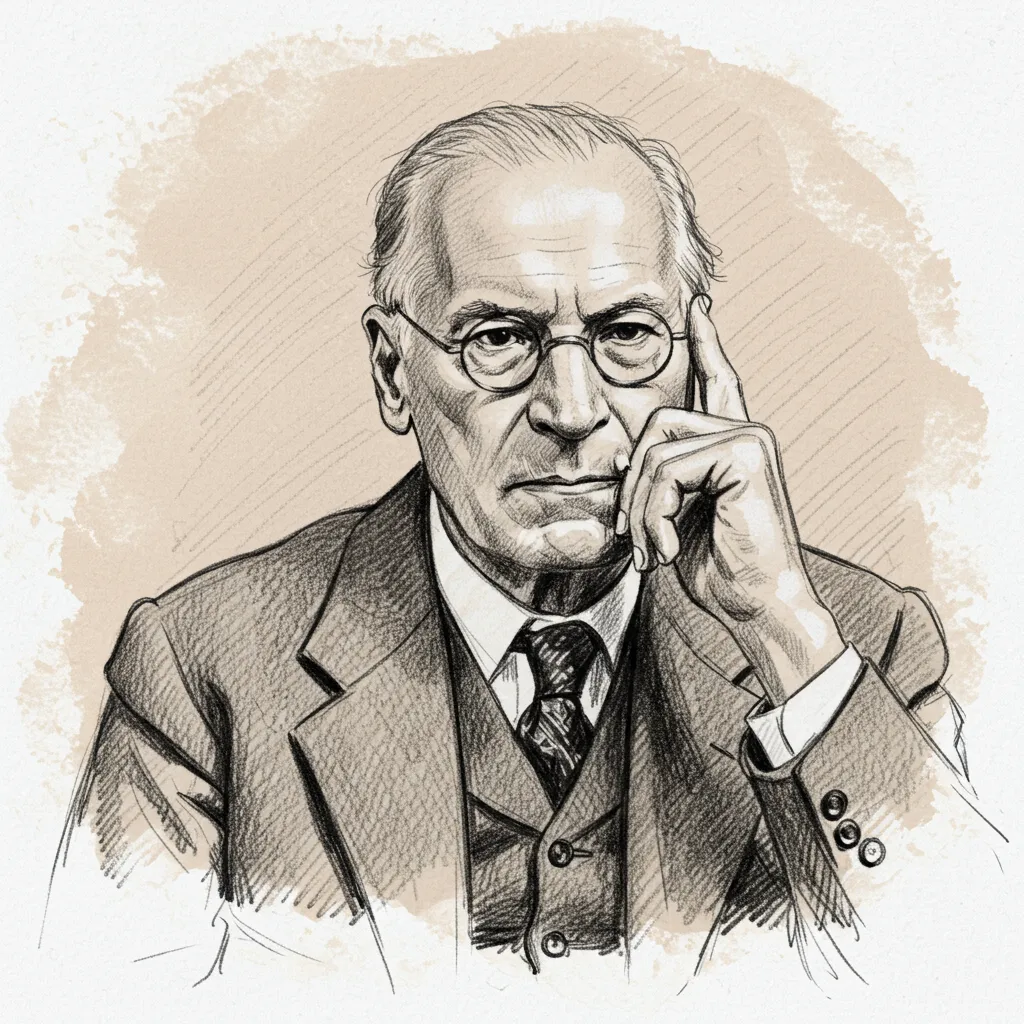
Carl Jung’s Eight Signs of Rare Personality Types
Carl Jung’s Eight Signs of Rare Personality Types: Are You Psychologically Rare?
In a noisy world obsessed with conformity, Carl Jung’s work reminds us of a profound truth: some individuals are born to live at deeper levels of consciousness. Jung believed that less than 5% of people develop what he called “differentiated consciousness” — a rare way of perceiving reality that pushes humanity forward.
Yet here’s the tragedy: many of these rare individuals spend their entire lives believing something is wrong with them. They’re told they’re too sensitive, too intense, too curious, too much. But in truth, these traits aren’t flaws. They are upgrades.
If you’ve ever felt like an outsider, if your emotional depth or relentless questioning has been treated as weakness, Jung would argue the opposite: you are part of humanity’s psychological elite.
Here are Jung’s Eight Signs of Rare Personality Types — the markers of what I call advanced psychological architecture.

1. Emotional Depth That Feels Supernatural
You don’t just feel emotions—you experience them like symphonies, layered with meaning.
Jung described this as “affect-toned complexes,” where emotions become pathways to deep understanding.
Others may accuse you of being “too sensitive,” but in truth, your emotional intelligence is operating at an advanced level.
You sense unspoken tension, carry emotional undercurrents, and feel what others suppress.
Keywords: emotional depth, emotional intelligence, Carl Jung, rare personality traits

2. Sacred Curiosity and the Refusal to Accept Shallow Answers
You don’t just ask what—you ask why.
Why do we accept broken systems? Why do people settle for shallow relationships?
Jung called this the transcendent function—the ability to see beyond current limitations.
Your questioning may unsettle others, but it’s a mark of conscious evolution.
Keywords: sacred curiosity, questioning reality, Jungian psychology, transcendent function

3. Conscious Independence Through Individuation
Jung said, “The most terrifying thing is to accept oneself completely.”
Rare personalities achieve independence not as defense but as accomplishment.
Through adversity, you build an identity not tied to others’ validation.
Jung called this individuation—becoming whole by embracing even your shadow.
Keywords: individuation, independence, shadow work, self-acceptance

4. Hyper-Perceptive Awareness (Advanced Intuition)
You read people beyond words—through energy, micro-expressions, unspoken signals.
Jung validated intuition as a psychological function, not imagination.
You sense what others miss, but without boundaries, it can drain you.
This isn’t paranoia—it’s psychological sensitivity at its highest level.
Keywords: intuition, hyper-awareness, Jung, psychological sensitivity

5. A Relentless Craving for Meaning
Shallow goals don’t satisfy you; authenticity is non-negotiable.
Jung observed that rejecting meaning leads to neurosis—your psyche rebels against inauthentic living.
You are wired to prioritize purpose, depth, and truth over popularity or conformity.
This makes you an evolutionary catalyst for collective growth.
Keywords: craving meaning, authentic living, life purpose, Jungian wisdom

6. Outgrowing People and Environments Repeatedly
As you evolve, people may not recognize you anymore.
Jung called this psychological death and rebirth—a shedding of conditioning.
Old friends may want the “smaller” version of you back, but you cannot return.
Growth means outgrowing—not arrogance, but evolution.
Keywords: personal growth, psychological rebirth, Carl Jung, evolving consciousness

7. Transformational Presence
Jung compared relationships to chemistry: when two personalities meet, both are transformed.
Your authenticity creates psychological holding space where others feel safe to open up.
You don’t offer quick fixes—you offer depth, presence, and truth.
But you must learn discernment—giving this presence too freely can exhaust you.
Keywords: transformational presence, authentic relationships, psychological healing, Carl Jung

8. A Sense of Purpose That Can’t Yet Be Defined
Deep inside, you feel you’re here for more—something beyond the ordinary.
Jung called this the transcendent drive toward individuation.
It’s not about fame or recognition—it’s about alignment with your soul.
If ignored, this calling turns into anxiety or emptiness; if embraced, it becomes your path to evolutionary consciousness.
Keywords: life purpose, individuation, transcendent function, authentic self

The Shadow Side of Rare Personality Types
Jung warned that even rare personalities carry shadow risks:
Superiority Complex – believing rarity means “better than” others.
Messianic Shadow – trying to heal or wake everyone up.
Martyrdom Complex – believing rarity means destined for suffering.
Integration is the key—your gifts must not control you unconsciously.
Conclusion: You’re Not Broken. You’re Breakthrough.
If these signs resonate, you are not “too much.” The truth is simpler: the world is often too little for you. Jung believed rare personalities serve as the leading edge of human consciousness, expanding what it means to be human.
Your emotional depth is intelligence.
Your curiosity is sacred.
Your independence is sovereignty.
Your purpose is evolution.
The world doesn’t need you smaller—it needs you fully alive, psychologically rare, and proud.

"Visit us at our Courageous New Dawn Series on Amazon for deeper insights into Jungian psychology, shadow work, and personal evolution."
